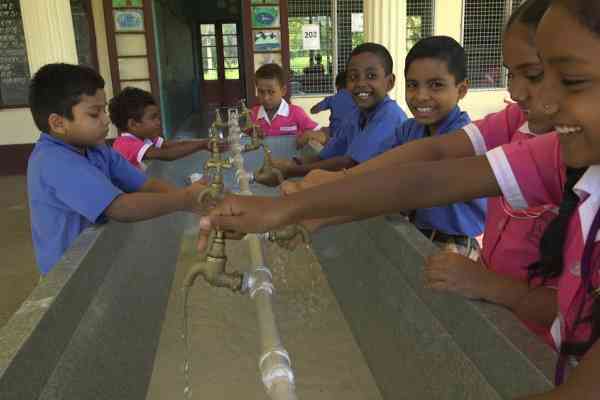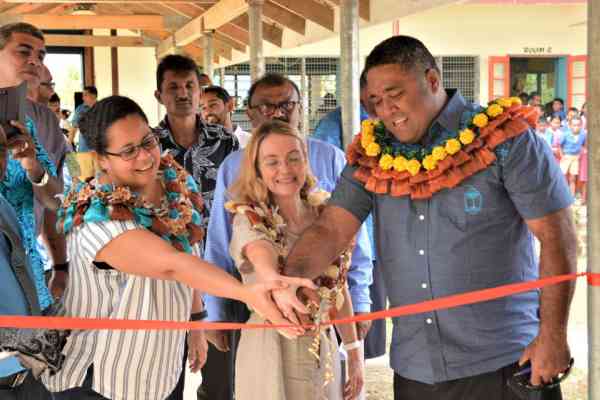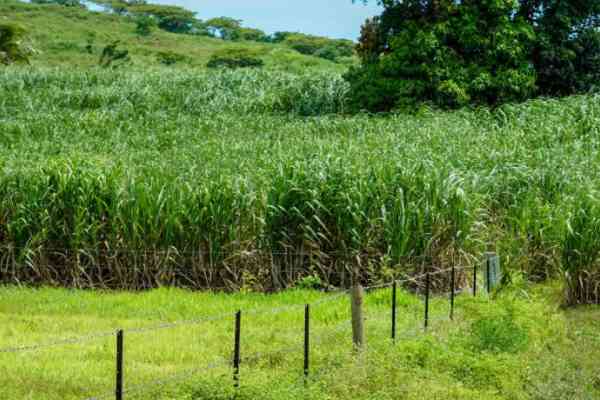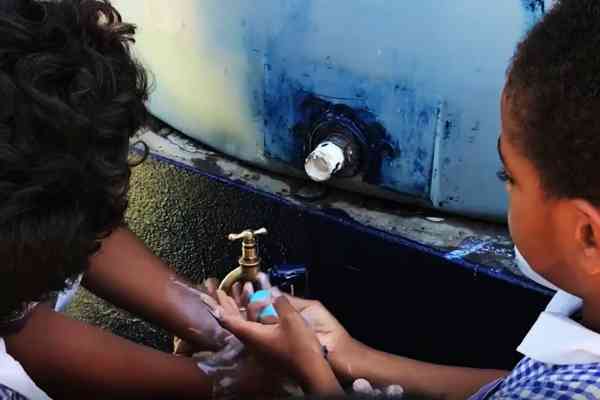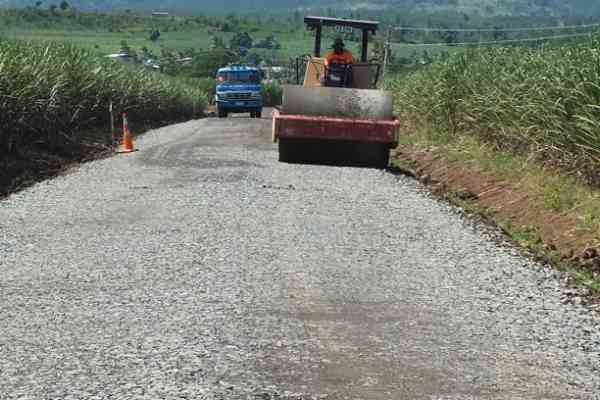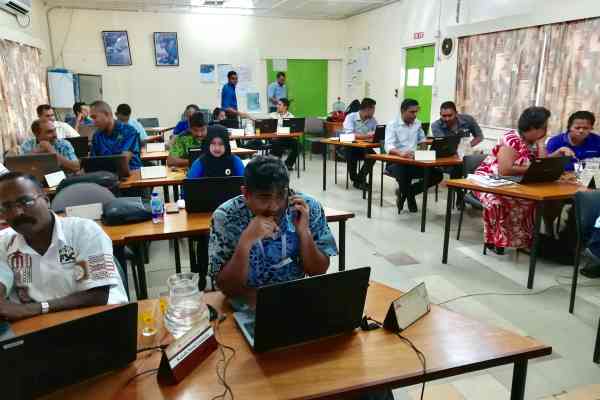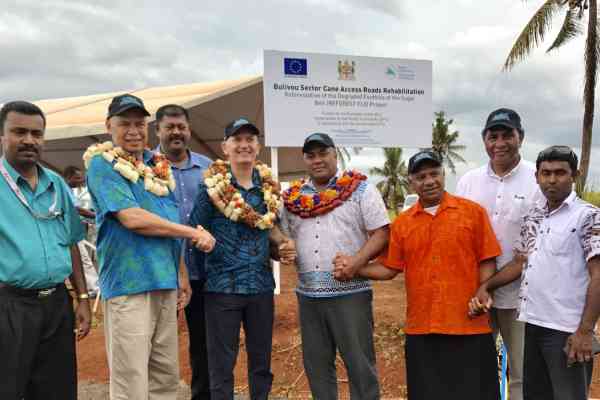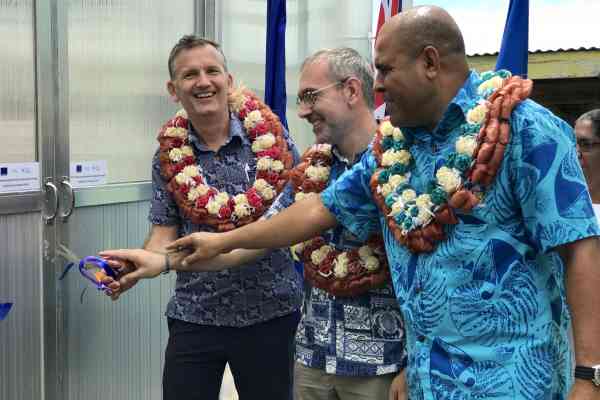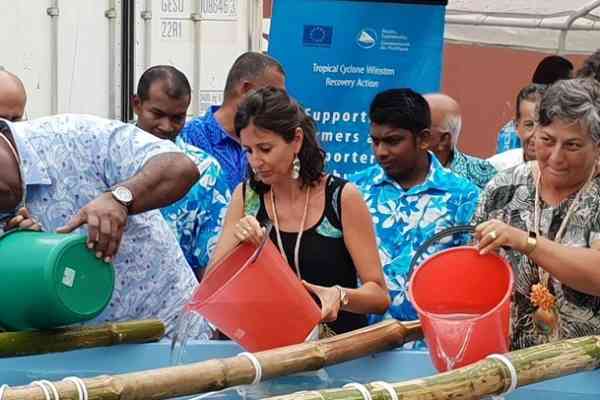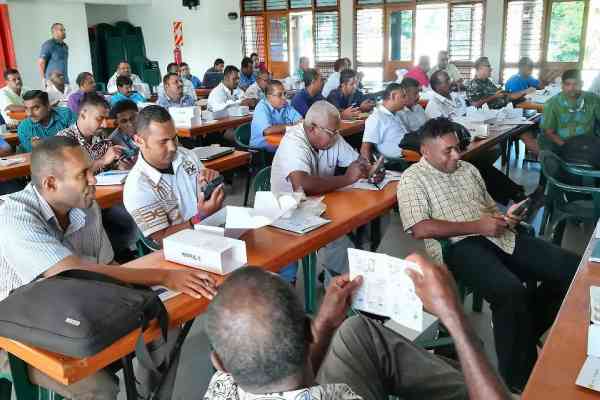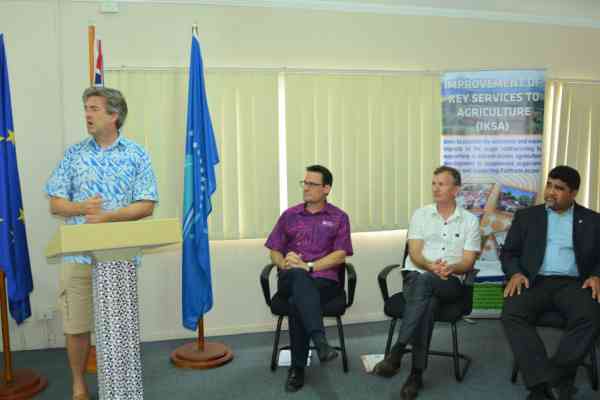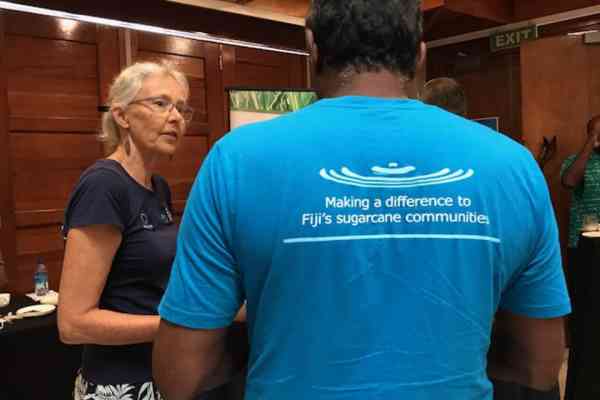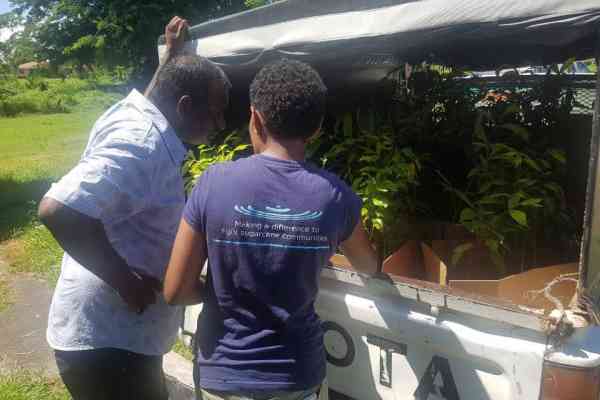The Micro Projects Programme or MPP is a five year project which started in October 2013 and will run until June 2018. The EUR 4.3 million project is funded by the European Union (EU) and implemented by the Pacific Community (SPC). The Pacific Community is delivering a number of projects that are funded by the European Union’s Accompanying Measures for Sugar Protocol (AMSP) Programme, across Fiji’s sugarcane belt. MPP is one of those projects, covering WASH, Rural Electrification, and Hydrological surveys.
The MPP initially was to feature at least 50 micro-projects throughout the Vanua Levu and Viti Levu sugarcane belt in the Fiji Islands. These projects were intended to be in the area of water supply and sanitation, education access/facilities, rural transport systems (access roads, construction and/or upgrade of existing foot bridges (including suspension bridges), upgrading of small bridges); rural electrification and housing/kitchen upgrade facilities and infrastructure.
Severe Tropical Cyclone Winston was the strongest tropical cyclone on record to have made landfall in the Southern Hemisphere. Striking Fiji as a Category 5 cyclone on 20 February 2016, TC Winston inflicted extensive damage on many islands. The cane belt communities, the target beneficiaries of the MPP project were severely affected. The MPP project was refocussed, following this event, as part of the European Union’s TC Winston recovery response in the medium to longer term. The refocussing of the project did not alter the overall and specific objectives, but because of changed priorities and post disaster needs of beneficiaries, the expected results, activities and methodology of the project was necessarily amended.
The new MPP focus seeks to improve access to safe and disaster resilient water supply, sanitation and hygiene facilities and practices through the rehabilitation/construction of WASH facilities in cane belt schools impacted by TC Winston; and through hydrological surveys and assessments for new sources of groundwater undertaken in some cane belt communities. MPP also seeks to improve access to affordable electricity and increased income generating opportunities through the installation of Solar Home Systems (SHS) in cane belt communities and train women, men and youth on the basics of solar photovoltaics, operations and maintenance of the installed SHS. Additionally, MPP will provide training on income generation skills to help communities to maximise the use of their power supply and appliances.
- The overall objective of the Micro Projects Programme (MPP) is to mitigate the adverse effects of the EU sugar price reform and overall decline of the sugar industry on the most disadvantaged groups.
- The specific objective is to reduce social, economic and environmental vulnerability of sugar cane farmers and mill workers impacted by the sugar reform.
The target beneficiaries consist of communities and schools within TC Winston affected areas in Fiji’s sugar cane belt. It is estimated that 200,000 Fijians depend in whole or in part on sugar cane farming with 17,000 registered growers and 12,000 seasonal cane cutters. Many of these communities have been devastated as a result of the cyclone and are in need of immediate relief and longer-term assistance.
- Improves access to safe and disaster resilient water supply, sanitation and hygiene facilities and practices.
- Improved access to affordable electricity and increased income generating opportunities.
The MPP is a European Union funded project implemented through SPC.
